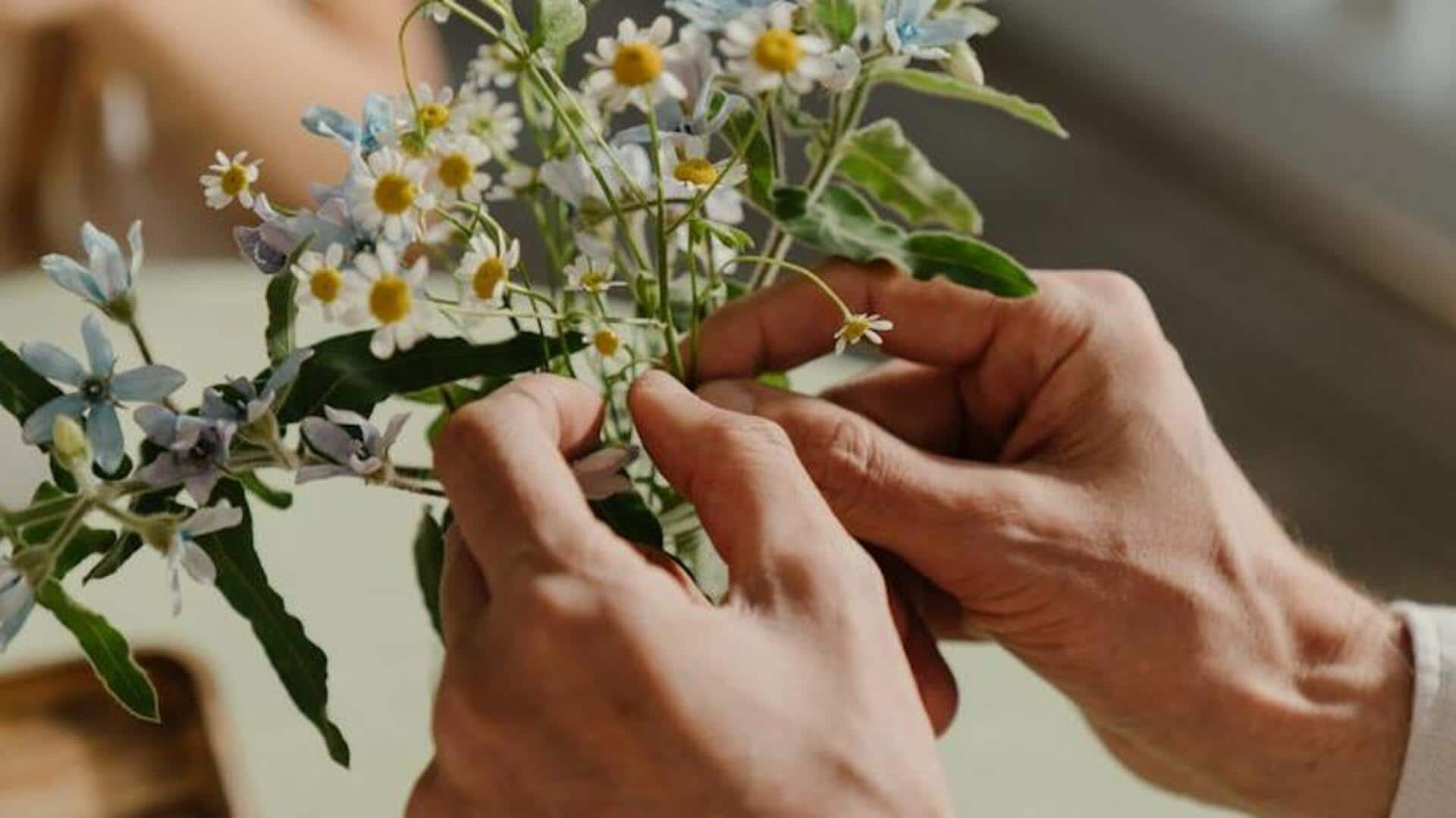
Organize your herb garden for elevated culinary adventures
What's the story
A well-planned herb garden can transform your culinary creations, infusing fresh flavors directly from your backyard (or balcony!).
Whether you're working with a sprawling outdoor space or a cozy apartment balcony, starting an herb garden is a simple and rewarding way to elevate your home-cooked meals.
This guide provides expert tips on planning, organizing, and maintaining your herb garden for optimal yield and flavor.
Location
Choose the right location
Herbs need the right conditions to grow, and that means plenty of sun and well-drained soil.
Most herbs require a minimum of six hours of direct sunlight each day.
So, if you are planning to create an herb garden, choose a location that gets lots of natural light throughout the day.
And, if you don't have much outdoor space, choose south or west-facing windowsills or balconies.
Containers
Select containers wisely
Container gardening is perfect for growing herbs, particularly if you're short on space.
Select containers with sufficient drainage to prevent waterlogged conditions and root rot.
Terracotta pots are favored for their breathability, assisting in avoiding overwatering.
Keep in mind, bigger containers retain moisture longer compared to smaller ones, hence need watering less often.
Grouping
Group herbs by type
Group herbs together based on their watering needs and growth habits. This makes it easier to care for them and ensures they thrive.
Mediterranean herbs such as rosemary, thyme, oregano, and sage like drier soil and require less watering.
On the other hand, herbs like basil, cilantro, parsley, and chives prefer more moisture in the soil.
Grouping herbs this way ensures each plant gets the right conditions for growth.
Soil quality
Use quality soil mixes
The key to a thriving herb garden lies in the quality of the soil you choose.
Herbs love well-draining soil that's rich in organic matter.
For container gardening, always go for a high-quality potting mix that's specifically formulated for edible plants.
Boost soil fertility by adding nutrient-rich compost or worm castings. This will definitely give your plants a healthy head start.
Pruning
Regular pruning for healthier plants
Regular pruning doesn't just keep your herb plants looking neat and tidy - it also encourages them to grow fuller and bushier by stimulating new shoots to develop.
By harvesting leaves from the top, you're encouraging plants to grow outwards, not just upwards.
This will help your plants become bushy instead of tall and thin, and it means there will be more leaves for you to use in your cooking.